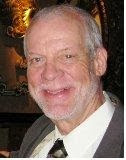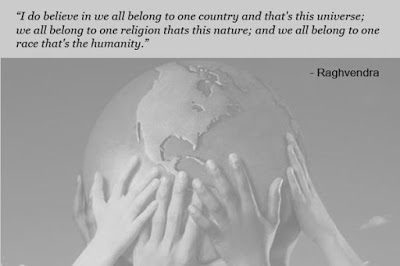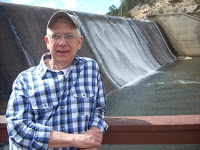Joining a club sometimes can
be a good fit, sometimes not. DPMC, or
Denver Professional Men’s Club, is a euphemism. I suppose that, if the club were located in
a more cosmopolitan area with a reputation for having a large gay population,
such as San Francisco, the club might have been named “Denver Gay Men’s
Club.” Also, to me, “Professional Men’s
Club” sounds rather presumptuous. All it
really means is that a member is supposed to have enough money to host and
cater large gatherings of around one hundred men, has an elegant home large
enough to accommodate such a group, and money to hire bartenders.
A few years ago, Dr. Bob
persuaded me to join DPMC and sponsored my application. After all, “Not everyone is suitable for
admission.” This reminds me of the
quotation attributed to Groucho Marx, “I wouldn’t want to be a member of any
group that would have me as a member;” for I do not have a very large,
expensive home, and I cannot afford to cater food for a hundred men or to hire
professional bartenders. I did join
DPMC, albeit only briefly. My rationale
was that I needed to get out more, meet more people, socialize more, because I
had been so isolated living alone and running a home office after the death of
my partner.
I generally am open-minded,
enjoy people’s company, and give people the benefit of the doubt unless proven
otherwise. Eventually, however, I
realized that I was not particularly happy in DPMC. So many of the members seemed so full of
themselves. Everyone stood about,
shoulder to shoulder or occupying the various chairs and couches, chatting to
their few selected friends to the
exclusion of others. Most of the members
drank, some drank heavily. There was
plenty of catered food, although the heavy drinkers often ignored food or
merely nibbled at it. The gay bartenders
were kept very busy and made a lot in tips.
I never have been big on alcohol.
If I ever had a drink, it was only one, and that was for the taste, not
to get a buzz or to loosen up. One
egotistic member, known to give private cocaine parties and popular with those
who attended, tried to give a recovering cocaine addict some cocaine as a
birthday present. Those factors alone
set me apart from most of the members.
I made a point of
circulating among everyone, trying to get to know them. I discovered, however, that the
long-established cliques tended to stay together and were little interested in
getting to know new members. Also,
although ages ranged from early twenties to, in one case, early eighties, most
were at least a generation younger than I and clearly preferred to remain
within their own age group. This
certainly was true in one particular case.
Long enough ago when
brick-front stores sold CDs and DVDs, as opposed to generally buying on-line, I
used to frequent Tower Records. That
large store had a separate room for classical music so that those of us with
sensitive ears would not be accosted by the sound of pounding drums and
screeching pseudo-singers blaring from the speakers in the main part of the
store. Naturally, I found few, more
discerning shoppers in the classical room.
That is where I was surprised to find a boyishly-young shopper sorting
through the opera recordings. We struck
up a conversation, and he mentioned that he was studying opera and sang
tenor. We found that we had a lot of
interests in common.
I later discovered that this
young tenor was a member of DPMC. I
found him chatting with a small group of twenty-somethings. I greeted him and spoke with him for a moment;
however, I quickly felt that I was regarded as an intruder, my being older and
not a member of their clique. It also
became apparent that another in that group had taken the young tenor as a
partner and preferred not having any strangers talking to him. So, regardless of having similar musical
interests with the tenor, I did not fit in.
I found that the older
members of DPMC were more courteous and accepting of newcomers, yet I had
little in common with them. The
eighty-two-year-old multi-millionaire, who made his money in Texas hogs, sheep,
and most likely some oil, lead an ostentatiously flamboyant life, as evidenced
by his owning a pink Rolls Royce, a much younger, former drag queen, and a
large home decorated in a style that would have embarrassed Liberace. Yes, they were kind enough to invite me to
their Christmas party, but our interests were so different that we did not make
socializing together a regular habit.
The most unusual member whom
I met was Jimmy. (I am leaving out his
surname.) I was puzzled by his arrival
at a DPMC party one evening, his appearing to be no more than fourteen-years-old
and in the company of a tall man in his mid-forties. I dismissed the idea that the older man had
the indiscretion to bring an underage partner, so I wondered why this man was
bringing his son or nephew to an adult party.
Later in the evening, I noticed that Jimmy sat alone, abandoned,
ignored, and obviously very sad. When I
witness people feeling hurt or sad, that distresses me. So, I approached Jimmy to see if I could
cheer him up.
During our conversation,
Jimmy revealed that he had an off-again / on-again relationship with the tall
man, and was living with him. I sensed
that Jimmy felt that he was being used but had no practical idea how to find an
alternative life. I was interested to
hear that he loved classical music and owned a grand piano, although it had
been placed in storage because the tall man had no room for it, leaving Jimmy
without the opportunity to play. He also
enjoyed opera and cooking. I was able to
observe very clearly that he never smiled, that his apparent sense of sadness
and loneliness were disturbingly deep-seated.
He surprised me when he mentioned that he was employed. I also noticed that, contrary to Jimmy appearing
to be too young to shave, he sounded much more mature than a mere
fourteen. I said to him, “I don’t wish
to be too personal in inquiring, but how old are you?” He stunned me when he replied, “Forty.” Trying in my mind to reconcile the dramatic
difference between his age and his appearance, I quickly concluded that he must
be an extremely rare case of Kallmann syndrome, an affliction of the
hypothalamus and pituitary gland that, at the very least, prevents
puberty. I then understood Jimmy’s sense
of alienation and isolation, his being a forty-year-old man who looked
fourteen. He being so different, he did
not have a sense of belonging.
My having been working for
many years in behavioral health, I wished that there were some way that I could help Jimmy and offered to be
available to talk with him if he desired.
He seemed thankful and provided me with his full name and phone
number. The next weekend, I phoned Jimmy
a few times to see how he was doing and if he needed someone to talk with. I received no answer, and he did not call me
back.
At the next DPMC gathering,
Jimmy again appeared. I spoke with him,
saying that I hoped that he was OK. He
puzzled me when he stated that I could have phoned him. I replied that I had but had received no answer. About this time, a DPMC member with camera
came around, taking pictures for the next newsletter. The moment Jimmy spotted him, he bolted from
his chair and hid behind a large fish tank, refusing to have his picture
taken. The cameraman tried to persuade
Jimmy to come out from behind the fish tank and to have his picture taken, but
he adamantly refused. I interpreted
Jimmy’s action as having been so self-conscious and unhappy with himself that
he would not allow his picture to be taken.
I never saw Jimmy after that. I
wonder what became of him. I hope that
he has found happiness.
I did not stay in DPMC much
later, either, mostly because I was not impressed with what this club turned
out to be, and I did not find people with similar interests who could become
friends. Another contributing factor was
that the events coordinator must have thought of himself as a twenty-something,
slam-dancing, hot club-guy; and he arranged events to suit himself, despite the
fact that most of the members were more mature than that. He arranged for a Halloween party in a huge
warehouse and hired a DJ to play ear-splitting, pounding noise. Literally, I could not remain in that
warehouse, even though I had stuffed paper napkins into my ears and stood in
the farthest corner away from the towering speakers. The decibels must have been about twenty
points above the level that causes hearing damage. I was forced to flee to the parking lot,
finally deciding that I might as well leave.
There was no way I could go back inside and be comfortable, let alone
protect my hearing.
When I was about to leave, a
long limo with a bunch of queens and driven by a Russian émigré came into the
parking lot. It just so happened that my
costume was that of a KGB officer, with a KGB general’s hat, black-leather
coat, trousers, boots, and gloves. The
Russian noticed me immediately, came over, and addressed me in Russian, which,
obviously, I did not understand. He turned
and walked away when he realized that I was not Russian and that my apparel was
merely a costume.
The events coordinator
arranged another gathering at a bar that was built like a concrete box. Apparently he had hired the same DJ, who
played ear-damaging noise. Several of us
fled to the rear of the building and finally left the event early when the bar
needed that area to set up for another event.
Later, when I politely inquired of the events coordinator why he
arranged extremely loud events, he gave me a very snotty reply. I increasingly became disillusioned with
DPMC.
There was one annual event
that was supposed to be very chique, the Christmas black-tie
dinner. Formal tuxes were expected and
an extra fee charged. I did not
attend. Friends, who are no longer members,
have told me that they found the event rather artificial and ostentatious. They, too, became disenchanted with DPMC and
quit.
The very last gathering I
attended consisted of several cliques that clung to each other and ignored
everyone else. At that point, I finally
concluded that DPMC had almost nothing to offer me. I let my membership lapse and ignored
membership-fee notices mailed to me.
Since then, I was introduced
to the Story Time group. Here I have
found people who have something worthwhile to say, who have had interesting
lives, and who are interested in hearing about other’s experiences, thoughts,
and feelings. These members are genuine
people who share without pretense and who provide a welcome atmosphere of
trust. These are the people I look
forward to seeing each week.
© 4 March 2015
About the Author
I have had a life-long fascination with people
and their life stories. I also realize
that, although my own life has not brought me particular fame or fortune, I too
have had some noteworthy experiences and, at times, unusual ones. Since I joined this Story Time group, I have
derived pleasure and satisfaction participating in the group. I do put some thought and effort into my
stories, and I hope that you find them interesting.




